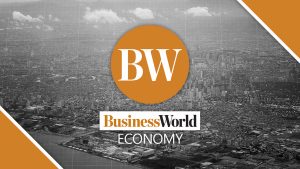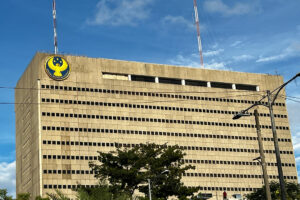Making the ESG shift now

The COVID-19 pandemic significantly impacted the world, affecting not just our physical health but also our economies and societies. It has had an especially notable impact on how businesses use their resources, harmonize the greater interests of their people and their clients vis-à-vis their own proprietary interests, and create sustained outcomes by maintaining strong and ethical corporate policies and practices. Set against these challenges is the grander scheme, a bigger framework that is ever evolving and developing — ESG.
WHAT EXACTLY IS ESG?Environmental, Social, and Governance (ESG) is a strategic framework that allows companies to assess and address institutional goals and objectives in terms of reducing their harm and protecting the environment, advocating for sustainability, maintaining a healthy work environment, and creating impactful changes in their management and overall organizational policies that would, in turn, create a positive and meaningful impact on society. The three main factors that compose ESG are the following:
Environmental factors cover the company’s overall commitment to protecting the environment by making the most out of its resources while reducing harm and advocating sustainable development.
Social factors encompass the company’s relationship with its employees, its labor practices, dedication to create an inclusive and diverse working environment, as well as its impact on the community in which it operates.
Governance factors refer to the company’s resolve to implement practices in full compliance with rules and regulations, including future legislation that affects its operations as well as its internal corporate culture, policies, and practices.
Today, as more and more investors are looking to invest in green projects or in companies that are not only profitable but also those that are able to create growth and long-term value through sustainable practices, there is an increasing need for more comprehensive ESG reporting worldwide. This also means that companies should always be on the lookout and should adequately prepare for possible changes brought about by the latest ESG legislation and trends.
In the Philippines, there is an increasing trend toward green investment, with the country found to have the second-highest proportion of green investors in Southeast Asia next to Malaysia, based on a recent survey conducted by Milieu Insight. In fact, the survey revealed that 70% of those who showed support for green investment have increased their allocation in the past two years. And this could only mean one thing for Filipino businessmen: be ESG-ready!
One of the best ways investors can assess a company’s ESG performance is by looking at its ESG reports. In 2019, the Securities and Exchange Commission (SEC) released Memorandum Circular No. 04, which requires publicly listed companies to submit a sustainability report to assess and manage their non-financial performance across the economic, environmental and social aspects of their organization. The sustainability report is also required for companies to measure and monitor their contributions towards achieving universal targets of sustainability, such as the United Nations Sustainable Development Goals (SDGs). Further to this, the SEC is also reportedly planning to fully implement the Association of Southeast Asian Nations Sustainable and Responsible Fund Standards (ASEAN SRFS), which aims to enhance the transparency and uniformity of reporting by providing minimum disclosure and reporting requirements.
Meanwhile, companies should keep abreast of recent legislation that could have an impact on their ESG policies and advocacies to adequately prepare themselves and be able to create and implement changes ahead of the rest. Among the notable developments in ESG legislation in the Philippines are the following:
Republic Act (RA) No. 11898 or the Extended Producer Responsibility (EPR) Act of 2022 requires large companies that produce plastic packaging waste to establish programs to ensure effective and proper recovery of plastic waste. By Dec. 31, 2023, the law requires that companies meet a target recovery rate of 20%, which increases to 40% in 2024 and increases by 10 percentage points in each of the succeeding years until 2028.
RA No. 11697 or the Electric Vehicle Industry Act, seeks, among others, to ensure the country’s energy security and independence by reducing reliance on imported fuel for the transportation sector, promote and support innovation in clean, sustainable, and efficient energy and to protect the health and well-being of the people from the hazards of pollution and the greenhouse effect. This law also grants tax incentives for imports of completely built electric vehicles (EVs) and their charging stations. Supporting the use and importation of EVs could contribute in significantly reducing greenhouse gases as they produce lower tailpipe emissions. Not only that, the steady rise in EVs adoption in the Philippines could also stimulate economic opportunities with the introduction of new industries that could generate thousands of jobs.
We also have pending legislation related to ESG. One example is House Bill No. 4102 or the proposed Plastic Bags Tax Act, which seeks to levy a P100 fee on each kilogram of single-use plastic bags removed from the place of production or released by the Bureau of Customs (BoC). Another one is House Bill No. 3370 or the proposed Pesticides and Chemical Fertilizers Tax Act, which seeks to impose an environmental tax on domestic manufacturers and importers of pesticides and chemical fertilizers that are sold for agriculture and other commercial purposes.
While the demand for more green investment is on the rise, so is the demand for higher accountability and responsibility from companies to develop effective and sustainable ESG programs that keep up with the times. And as we continue to navigate beyond the pandemic, it is paramount for companies to start shifting resolutely from a purely profit-centric orientation to taking on ESG-focused commitments, recognizing that when we put ESG at the heart of business operations, value can be generated for the company. Making that shift today would mean a step towards a more sustainable and equitable future, one where ESG is no longer an ideal but a norm. Make that ESG shift now!
The views or opinions expressed in this article are solely those of the author and do not necessarily represent those of Isla Lipana & Co. The content is for general information purposes only, and should not be used as a substitute for specific advice.
Rey Franz Cabidog is a senior associate at the Tax Services department of Isla Lipana & Co., the Philippine member firm of the PwC network.
+63 (2)8845-2728




